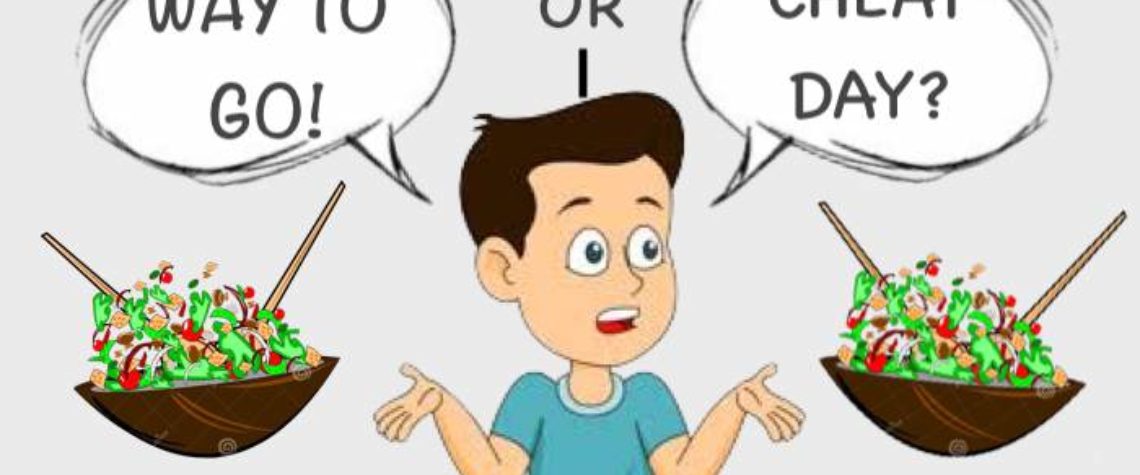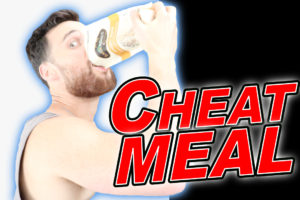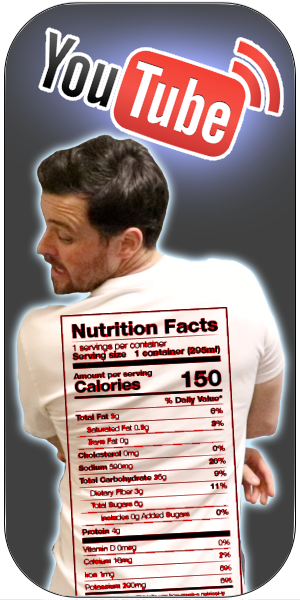What Your Cheat Meal Says About You
“Hey Cheater!” Yeah I’m talking to you. I’m talking to me too. We all cheat, in some form or another, it’s just human nature. When assigned a task we naturally try to solve it in the simplest, most time-efficient way, and sometimes that entails breaking a few rules. But can you cheat if your not aware that it’s the wrong thing to do? Can your actions be classified as unjust if you don’t have the information on the righteous behaviors? Both, good questions. I mean something really can’t be considered cheating if you are unaware that it’s wrong, right? By definition, Cheating is the receiving of a reward for ability or finding an easy way out of an unpleasant situation by dishonest means. Cheating is one of those actions that spans everything in our 21st century society, from sports, to education, business and politics. But what about Food?
One of the most common buzz words phrases used across the health and wellness industry these days is “Cheat Meal” or “Cheat Day” . Essentially these terms are used to signify the (hopefully) brief diversion from ones path of health. Using the word “Cheat” is a clear signification that we understand our involvement in some sort of dishonest behavior towards ourselves, on many occasions it’s to receive an immediate- usually processed– pleasure. In other words, we know that the cupcake isn’t necessarily healthy for us….BUT IT TASTES SO DAMN GOOD! Cheat meals are quite an interesting concept, they are built on personal beliefs and hold only as much weight as one will allow. Let the over-analysis into our cheating ways begin!
What is a Cheat Meal?
We (society) created this idea of a cheat meal after having a realization that the majority of food being distributed to the masses in stores is NOT good for us. As a result, we began to place the “Cheat” in front of the “Meal“, this is especially common for people striving for better health. Make Sense? Good! Here’s where it gets interesting: Everyone’s classification of “cheat meals” are unique to them, they’re based off a complex mathematical equation that analyze and categorize the very meal that you are staring at (or thinking about), and associates it with a particular level of guilt. It is extremely common for two people to look at the exact same McDonald’s Salad and have two completely different classifications of this meal. One may have a feeling of righteousness due to the fact that they’re opting for the salad instead of all the other mouth-watering options on the menu. The other may see this salad as a tower of trans-fats, sugar and processed meats on top of a few pieces of lettuces. The first person would enjoy the meal (and ones of similar nature), being proud of their healthy choice, while the second contemplates if this ‘cheat meal‘ is worth it. It’s only a cheat meal, if one perceives it that way.
The Guilt Factor
It starts out as a harmless snack, you reassure yourself “I’m just gonna have one!” as you go into the cabinet and grab a cookie for your mid-afternoon treat. Fast forward 30-minutes and your laying on the floor, stomach in arms, with a trail of crumbs back to the scene of the crime. That right there is a typical case of guilty-pleasure overload, don’t worry, your not alone. Lets explore: The definition of Guilt is: The fact of having committed a specified or implied offense or crime. So is your guilty pleasure basically a crime against yourself? Kinda! In terms of food, it’s when you clearly know that what your about to indulge in is not in the best interest of your health. BUT that short-term pleasure has overpowered any sensible pro-health forces in your head . After that last bite, guilt floods your body, your defense is non-existent, bailiff… cuff em’ (or me). Like the McDonald’s scenario above, guilt associated with a particular meal depends on ones personal categorization of the food. And categorization depends on education….
Fake ‘Food’ News
Where do you get your health information? Friends? Instagram? FDA guidelines? Scientific Studies? Or maybe you pickup tips while watching or listening to your favorite TV shows and podcasts. Most received the standard K-12 health education growing-up but if we’re being real, we all had better things to worry about than eating our veggies. As you get a little older and experience your youthful abilities fade, your waistline grow and energy dwindle, you naturally begin to look for some answers (insert fad diet here), in many cases we turn to the media. The health and wellness industry is a prosperous one ($4 trillion and growing), constantly pushing out new weight-loss programs, diets and supplements through all media mediums. This naturally creates a confusion among average consumers, how could one truly know what is real and what is fake? Without any formal education in nutrition or biology, we craft a personal opinion on what health means to us, and that becomes the baseline of our “cheat meal” classification. Fad diets and crafty marketing from the “processed” food industry can lead you down a path of false health in no time. The first investment you should make, is one in self-education! Being able to understand what fuel is optimal for your body is the true key to sustained health. The majority of current research points to a diet focused around plant-based whole foods, I’d start there. Keep in mind, these fad diets may give you some external results (which are good), but what’s actually important are the underlying results that YOU FEEL. The feeling of your body running at a more efficient level, with more energy, and less sickness, is the real goal.
There’s No Need to Cheat
We’ve created this perception of cheating and guilt as it pertains to food. It has really only existed for the past 50-100 years, what I’ll refer to as the “Processed Revolution“. We’ve openly sacrificed nutrition for convenience and a sugar rush. The results of the “Western Diet” on our health is proving to be an epidemic of chronic conditions, paralyzing the Health Care systems and our bodies at the same time. Your cheat meal can tell you a lot about yourself and the lifestyle you live. Take a minute and become mindful as you eat different foods, notice if they are accompanied with a small sense of guilt, accomplishment, or nothing at all. Do that a few times and you’ll begin to paint a picture of where you currently sit on this “Food spectrum of Health”. Of-course health encompasses much more, but food is a critical factor. You’ll see an amazing thing begin to happen as you invest in your health, your cheat meals begin to transform, foods once classified as normal everyday meals have been re-assigned to cheat ‘once a week’ status. The healthier you eat, the more you crave health……. it’s all a matter of getting started.
Your cheat meal doesn’t define you but it does give you a good idea of where your at.





